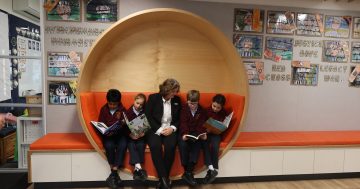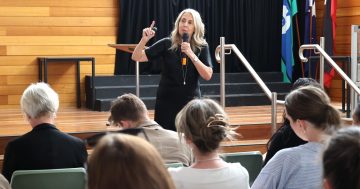
The education system has failed too many children, parents and teachers. Photo: Olga Evtushkova.
As a small business advocate, I often heard complaints about the literacy skills of young people. Now, with a broader sweep of things, I have had a closer look at the education system.
It is obvious that it is not performing to the level needed by the students and their families or for current and future employers and higher education institutions.
Learning to read and write is a fundamental human right. Without the ability to read, people will have a more difficult time in life than those who can.
The Reading Guarantee, a 2024 report from the Grattan Institute, showed that one in three students in Australia “were not mastering the reading skills they need”. No wonder employers are complaining.
Thousands of children in Australia have been falling behind in numeracy and literacy not because they are inadequate but because the education system’s failed them.
The system’s also failing their parents and carers. And their teachers. As well as everyone else because democracy relies on literacy.
Democracy demands voters can understand and comprehend what they read and hear.
To do this, we need a universal, capable and free education system that provides the literacy skills needed to understand what is going on. This will enhance our democracy with informed people making informed votes.
Democracies are also built on good economies, where citizens have the education and skills needed to get good jobs and good incomes to support themselves and their families through life.
If the education system does not give people the start in life they need with reading, writing and comprehension, then lives will suffer, industry will not be able to change or grow as it should, and economies will not be efficient.
In our modern world, judging and comprehending information becomes more important when we consider the number of information sources we now have.
In my younger days, I had access to three TV stations, some newspapers, a phone connected by a landline, and a handful of radio stations.
Now, we have any number of social media sources, millions of websites and constant online streaming of news and documentaries.
Many, probably most of us, have communication devices with us almost every single hour of the day.
This makes it even more important that the younger generations can read and listen and comprehend. Will they seek to know where information comes from and whether the sources are reputable?
The younger generations are no more or less gullible than every other generation. What they do have is instant access to news, information and opinions that no other generation has had.
Have they been taught the importance of checking information and how to actually do that? Reading and comprehension are key skills needed to seek and understand information. The pursuit of proof is now also more important than ever.
Any jurisdiction should always aim to achieve the highest possible outcomes in education for our young people, for tomorrow’s citizens.
Children going to government schools, in some jurisdictions, are much more likely to have problems with reading and writing, and comprehension, than students in the non-government systems.
And it is the children from less advantaged backgrounds that are overrepresented, making it difficult for them to find better lives.
Yet, showing that the failure is widespread, many children from advantaged backgrounds also miss the basic skills they need.
Not good enough.
As an example, this failure impacts the well-being of nearly 30 per cent of students in the ACT in their formative years.
That is more than 7000 primary school-aged kids whose futures are less secure.
This is a profoundly disturbing failure of government.
Interestingly, the Australian Education Union in most jurisdictions fought for and obtained more funds for the education of our children.
Now some governments have turned their backs on the needs of teachers and focused instead on infrastructure – not educational infrastructure, but transport, highways and tunnels instead. The AEU seems far less influential than the unions involved in construction and transport.
And while we’re on the topic of teachers, why not give them their weekends to relax and not work?
Peter Strong has announced his candidacy as an independent candidate for the ACT Legislative Assembly.




















